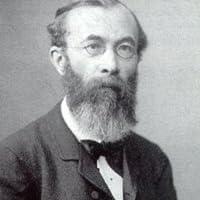
Wilhelm Wundt
Sull'autore
Wilhelm Wundt is widely regarded as the father of experimental psychology and the founder of the first psychology laboratory in Leipzig, Germany, in 1879. His pioneering work laid the foundation for psychology to be recognized as a separate scientific discipline. Wundt's approach was characterized by a focus on introspection and the study of conscious experience, which he believed could be measured and analyzed rigorously. He sought to understand the structure of the mind and how it functions through various experimental methods, which were groundbreaking at the time.
Throughout his career, Wundt published numerous works, including 'Principles of Physiological Psychology' and 'Elements of Folk Psychology,' where he explored the intersection of psychology and philosophy. He was instrumental in establishing psychology as a distinct field of study, influencing many subsequent psychologists and scholars. His emphasis on cultural psychology highlighted the importance of social factors in shaping human behavior, further broadening the scope of psychological research.